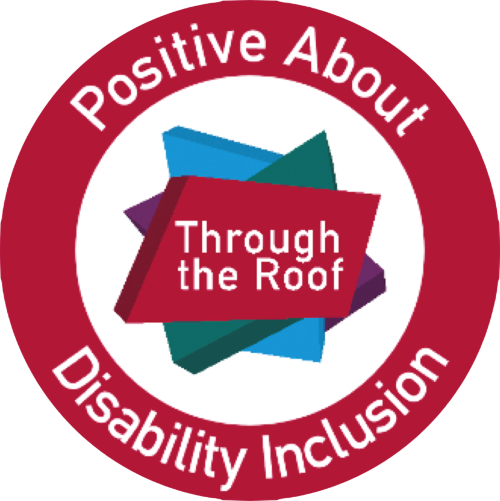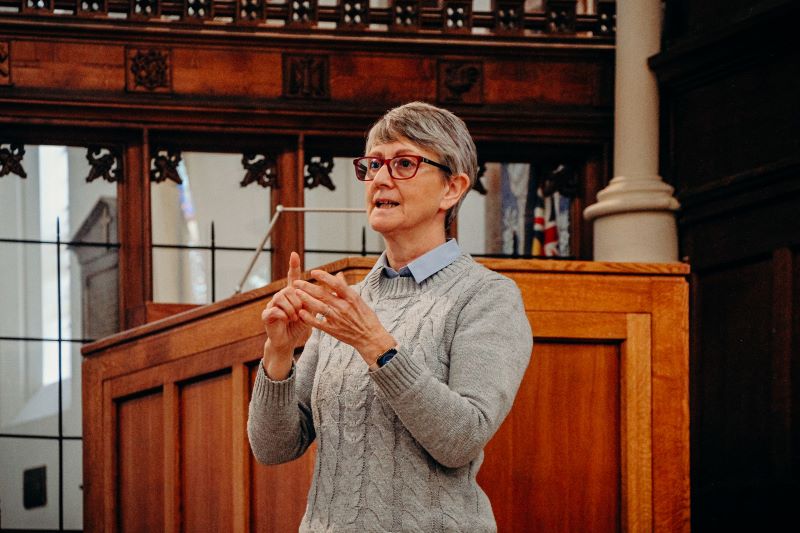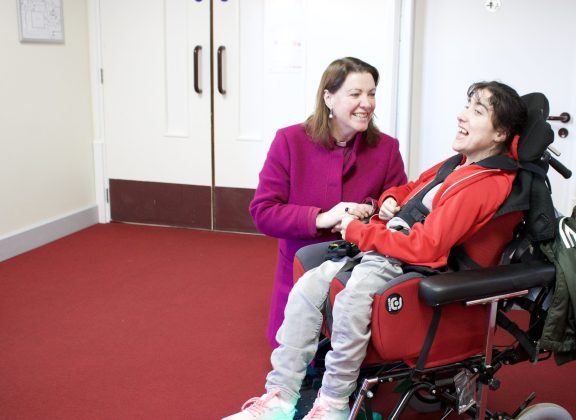The Diocese of Winchester is a place where all people are deeply valued and cherished and where the diversity of the body of Christ is celebrated. This must include paying special attention to the experiences of people with disabilities. The Diocese of Oxford have produced a great video which offers some initial advice…
If you’re looking to make your church building more accessible, it’s a good idea to start by performing an accessibility audit. You can download our Disability Access Audit below:

A number of our churches are ‘Roofbreaker’ churches, working with the charity Roofbreakers to break down the barriers faced by disabled people in Christian life.
Here are some stories from around our diocese about how we are seeking to become an inclusive church for all:
Churches Welcoming All Through BSL and Makaton Provision >>>


St Francis Church, Valley Park, recently received a grant to invest in sensory play equipment, as part of a wider project to better support children with additional needs and their families.
Non-Visible Disabilities
In our church and school communities, we need to be aware that some people have disabilities which are non-visible. They tend to be referred to as ‘non-visible’, as the word ‘invisible’ suggests the disability isn’t real, while the word ‘hidden’ can imply someone is hiding their disability on purpose. The most important thing to emphasise with people with non-visible disabilities is that although the disability can’t be seen, this doesn’t mean it doesn’t exist and these people need to feel fully included and able to participate in our communities.
Find out more about different types of non-visible disabilities >>>
Find out more about our Neuro-Divergent Clergy Meetings >>>
Resources
- The Church of England – Barrier Free Belonging
- The Church of England – Accessibility in Church Buildings
- Church Growth Trust – Making Church Buildings Fully Accessible
- Inclusive Church
- Disability Matters
- Torch Trust – Living with Sight Loss
- Royal National Institute of Blind People (RNIB)
- Additional Needs Alliance
- Mencap – Changing the World for Everyone with a Learning Disability
- Open Ears – Hard of Hearing Christian Fellowship
- Through the Roof – Christian Disability Charity
- MOSAIC – Movement Of Supporting Anglicans for an Inclusive Church
- Language Creates Reality- Using Appropriate Language Around Down Syndrome
- Parents and Children Together
- Calibre Audio – Audiobooks for Those Who Find It Difficult to Read Print
- Livability – Enabling People with Disabilities
- Living Made Easy
- Count Everyone In
